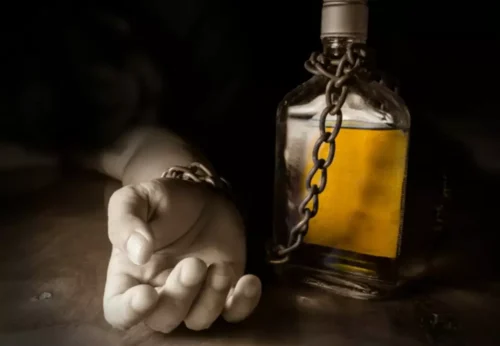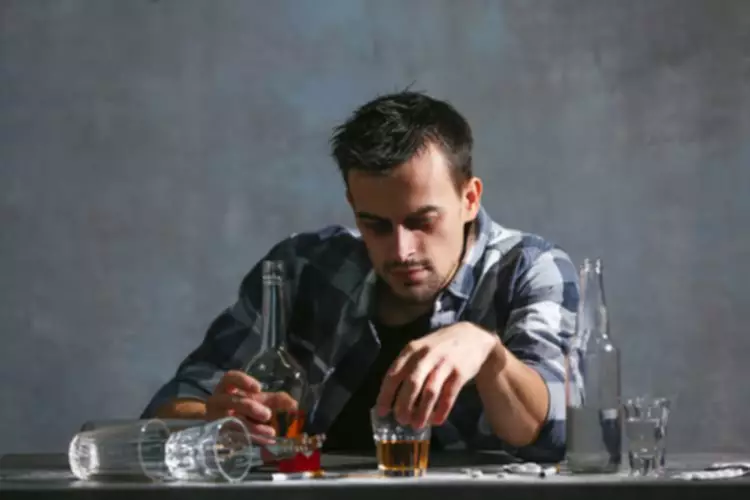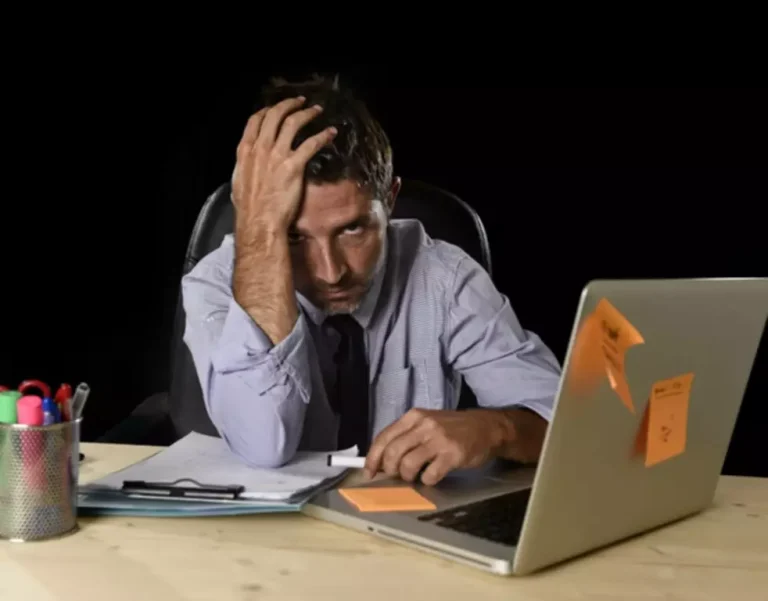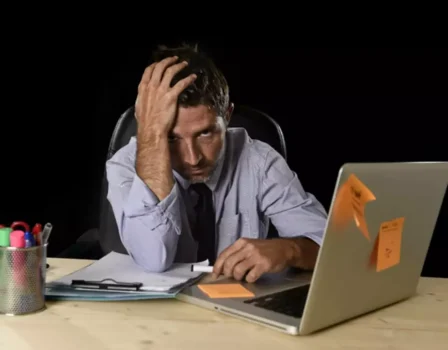Alcohol and Sleep-Related Problems PMC

It may increase the likelihood of waking up in the middle of the night, resulting in grogginess the next morning. Alcohol also affects people with central sleep apnea (CSA), which occurs when the brain periodically stops sending certain signals involved in breathing. Alcohol interferes with the brain’s ability to receive chemical messages involved in breathing, which decreases the body’s respiratory drive and increases the likelihood of pauses in breathing. The typical sleep cycle begins with three non-rapid eye movement (NREM) stages of sleep and ends with rapid eye movement (REM). During sleep, the body cycles through all of these stages every 90 to 120 minutes, with NREM sleep dominating the first part of the night and REM increasing during the second part of the night. Each stage is necessary for sleep to feel refreshing and for vital alcohol insomnia processes like learning and memory consolidation to occur.

Alcohol Dependence and Insomnia Associated with Other Sleep Disorders

Generally, even healthy alcohol consumption can lead to poor sleep quality. Alcohol is the most common sleep aid—at least 20 percent of American adults rely on it for help falling asleep. But the truth is, drinking regularly—even moderate drinking—is much more likely to interfere with your sleep than to assist it.
Limiting Alcohol Consumption Before Bed
Other primary sleep disorders may occur more commonly with AD and present as insomnia in the clinical setting. These include obstructive sleep apnea (OSA), periodic limb movement disorder (PLMD), and delayed phase sleep disorder (DSPD). AD has also been linked with periodic limb movement disorder, circadian rhythm abnormalities, and obstructive sleep apnea, which are discussed below. There is a lack of evidence that alcohol consumption is a trigger for sleepwalking (Pressman et al., 2007), although it has been linked epidemiologically to night terrors, which is another parasomnia (Ohayon et al., 1999). Self-reported sleep quality improved over 4–6 weeks of treatment and all but two patients remained abstinent. Alcohol may also exert some of its effects on sleep by influencing the circadian rhythm.

Surprising Ways Hydration Affects Your Sleep
None of the authors report any actual or potential conflict of interest with this current manuscript. Circadian rhythms regulate nearly all of the body’s processes, from metabolism and immunity to energy, sleep, and sexual drive, cognitive functions, and mood. Alcohol has been shown to negatively impact sleep, but this comes down to the individual.
- And though it may help in the short term, drinking alcohol before bed can actually lead to a night of horrible, restless sleep.
- Eye movement increases, often seeming to jerk around, breathing increases and can be irregular and shallow, blood pressure increases and dreams begin.
- This is particularly true if you drink within an hour of bedtime.

Eye movement increases, often seeming to jerk around, breathing increases and can be irregular and shallow, blood pressure increases and dreams begin. During this period, learning, memory, and processing functions of the brain are enhanced, affecting a person’s long-term memory capacity. It’s harder to wake the person as they become unresponsive to outside stimuli. This stage is what is referred to as “restorative sleep” – when the body works to repair itself and boost functions. Unsurprisingly, studies of people with insomnia have also found that heavy alcohol use exacerbates insomnia. People who wake up feeling unrefreshed may be more likely to rely on alcohol again to help them sleep the next night, leading to a counterproductive pattern of alcohol use.
- Each sleep stage plays an essential function, but deep sleep and REM sleep are considered the most important stages for physical and mental restoration.
- Although sleep improves with continued abstinence, permanent alterations to the sleep centers of the brain from chronic alcohol exposure may produce persistent abnormalities that, in many cases, require independent treatment.
- This association may be secondary to subjects self-medicating their insomnia with alcohol (Kaneita et al., 2007, Ancoli-Israel and Roth, 1999, Johnson et al., 1998).
Besides just waking you up a lot, alcohol can disrupt your normal sleep patterns enough to create some longer-term issues you may need to address. BetterHelp can connect you to an addiction and mental health counselor. In other cases, it’s caused by an uncomfortable sleeping environment, substance use, or shift work. If you think you may have a sleep problem or disorder, consider taking our brief sleep quiz to find out. Remember that only a healthcare professional or sleep specialist can diagnose a sleep condition. Consuming alcohol and experiencing restricted sleep reduces alertness during the day.
- A good soak in the bathtub or hot shower may release tension in your abdominal and back muscles and reduce cramping at night time.
- We’ve covered more on how long before bed to stop drinking alcohol here.
- But when you drink regularly over time, your brain adapts to alcohol.
- It is generally metabolized at a rate of 0.01 to 0.02 g% per hour (Arnedt et al., 2011b).
- Fortunately, there are proven ways to manage these symptoms and promote restful sleep while your body is withdrawing from alcohol.
These simple yet profound practices encourage stillness, reduce nervous system activity, and prepare your body for sleep. Don’t be afraid to explore different techniques to find what works best for you. A luxurious, secluded center treating mental health and substance and behavioral dependency issues with individualised treatment plans and world-class experts. However, certain food groups also have benefits when it comes to helping with the discomfort of withdrawal symptoms and detoxification.
- Many of us have indulged in a glass of wine to help send us off to bed, and more than 1 in 10 people uses alcohol to beat stress-related insomnia and sleep better at night.
- Insomnia results from a mismatch involving persistent activity in wake-promoting structures during NREM sleep, leading to simultaneous sleep and wake activity along with psychophysiological arousal (Buysse et al., 2011).
- Longitudinal studies evaluating PSG sleep have demonstrated the presence of increased SOL and sleep fragmentation, a decreased TST, and, abnormalities in SWS and REM sleep stages.
Avoid screens for at least an hour before sleep,6 as their blue light emission suppresses melatonin production and disrupts sleep cycles. A private oceanside center treating addiction and https://ecosoberhouse.com/ co-occurring mental health with tailored plans, evidence-based care, fun beach activities, and support for working professionals. Fortunately, there are proven ways to manage these symptoms and promote restful sleep while your body is withdrawing from alcohol. This guide explores science-backed strategies to help you manage withdrawal symptoms, calm your nervous system, and get the rest you deserve. Alcohol detox isn’t easy and not everyone can do it on their own.

Knowledge, attitude, and practice toward sleep disorders and sleep hygiene among perimenopausal women
After a few drinks, these increased adenosine levels send us into a deep sleep. However, once the body realizes it’s had too much slow wave sleep, the homeostatic drive compensates by allowing us less deep sleep in the second half of the night. During a normal night of sleep, we cycle through periods of light sleep, deep sleep, and rapid eye movement (REM) sleep. Each sleep stage plays an essential function, but deep sleep and REM sleep are considered the most important stages for physical and mental restoration. Whether you have had one or multiple drinks, it’s best to wait for your body to fully process the alcohol before heading to bed.
Circadian Rhythm Disruptions
For people who snore or who have sleep apnea—a disorder that causes repeated pauses in breathing during sleep—drinking alcohol tends to aggravate symptoms. If you are one of the nearly two thirds of Americans who drink alcohol, chances are, you’ve had a drink in the hours before bedtime. Maybe you enjoy a glass of beer or wine after dinner, or your weekends include drinking with friends at bars or social events.



